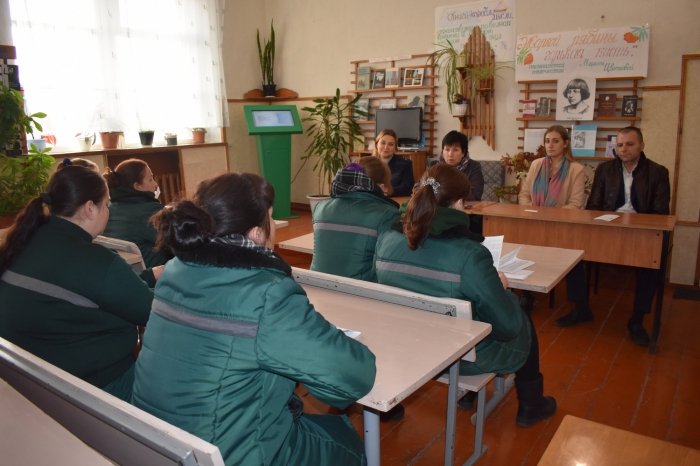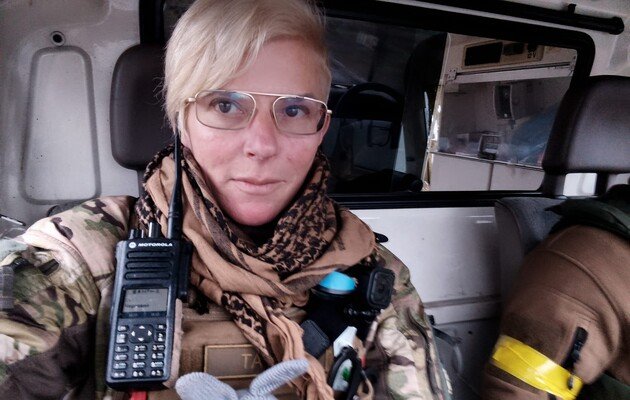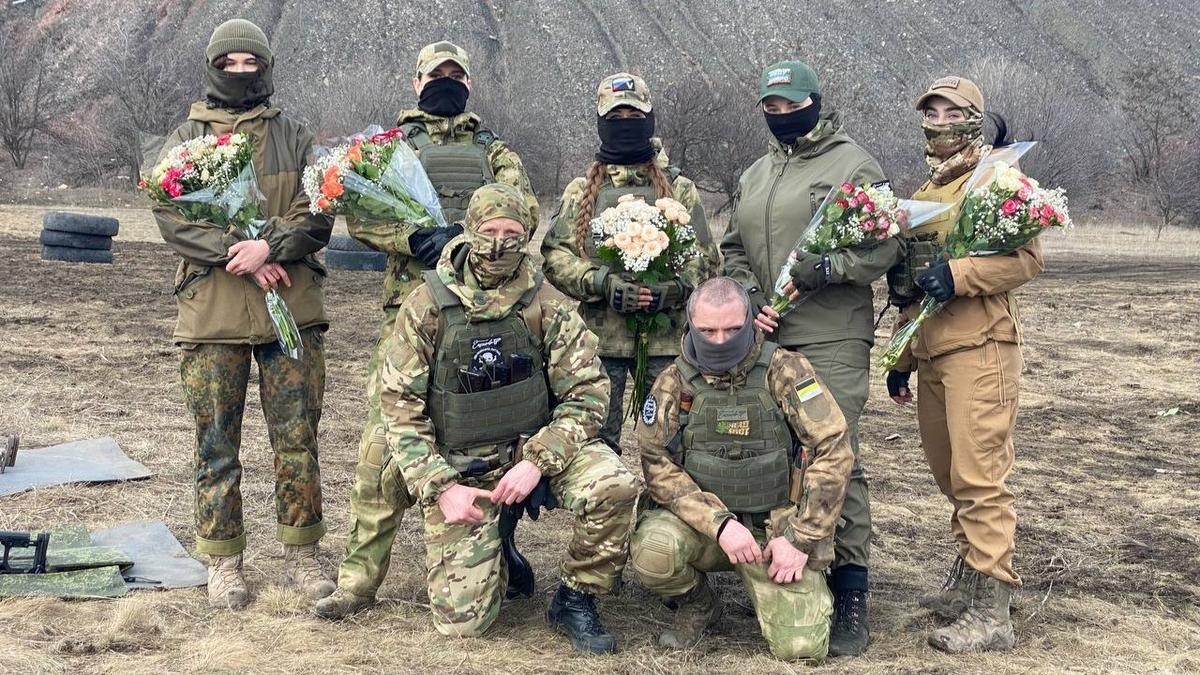The Russian military has turned to “mass recruitment” of women from prisons and detention facilities to fight in the Ukraine war, the We Can Explain Telegram channel reported last week.
The first group of 50 incarcerated women was sent to the front in January from a detention facility in the Luhansk “people’s republic”, according to Olga Romanova, founder of the Russia Behind Bars human rights organisation. A second group of about 100 female convicts was sent from prisons in Southern Russia, she said. Russia Behind Bars had learned of the prisoners’ mobilisation from concerned citizens in Kushchevskaya, a rural Russian town where the incarcerated women had previously worked on farms but suddenly disappeared.
A third group of around 30 women were brought to the front from a prison in Novouglyanka, a facility known for its high number of HIV-positive inmates. Relatives of the women from Novouglyanka told SOTA media outlet that the incarcerated women had signed two-year contracts with the Defence Ministry.

A prison in Novouglyanka, Russia’s Lipetsk region. Photo: the Russian penitentiary database
Romanova said Russia Behind Bars has started receiving appeals from incarcerated women who want help enrolling in the army. Many of these women identify with Zoya Kosmodemyanskaya, a widely-revered Soviet partisan in WWII whose heroism was the subject of the 1944 film “Zoya”. “As a rule, all incarcerated Russian women watch this movie in prison,” Romanova said.
Some women awaiting trial in detention centres have also opted to join the armed forces.
On 24 June 2023, Russian President Vladimir Putin signed a law that allows people who have been convicted or indicted for petty and “moderately grave” crimes to join the Russian army in Ukraine instead of serving prison time. After they complete their military service, the convicts’ criminal records will be expunged. The scheme is not open to people convicted of some grave crimes, including sexual violence against minors, acts of terror, espionage, and high treason. People convicted of rape and murder, however, are not automatically ineligible. Romanova said she had heard of this kind of arrangement even before it was officially signed into law.
“We don’t know much about the circumstances in which convicts enlist,” Romanova said. She said she had heard of two-year contracts in most cases but was “sure” that the government would not uphold its side of the deal.
It is also not known exactly how many female convicts have gone to the front. Eight percent of Russia’s incarcerated population — between 35,000 and 37,000 people — are women.
But it’s not just incarcerated women who are enlisting. In March, Russian Defence Minister Sergey Shoigu said that around
1,100 female members of the Russian military are actively fighting in Ukraine. The same report stated that more than 39,000 women serve in the Russian armed forces.
But an anonymous source in the Russian army said that “in general, women who want to join the troops are strongly discouraged”. Those who do enlist are likely to serve as drone operators or signalers and are less likely to be assigned to roles, like medics, that require great physical strength.
Women can, however, enrol in volunteer units like the Veterans brigade, the Somali battalion, and the Española squad, which is comprised entirely of football fans.
Española, in fact, has made several online posts appealing directly to women. These posts have mentioned a “female [sniper] squad” that Española is preparing to train and equip “comprehensively”. According to the online advertisements, female recruits must have perfect vision, athleticism, and an ability to “persevere and suffer”, but experience with firearms is not necessary.
Even more women serve in the Ukrainian army. As of November, the Armed Forces of Ukraine included nearly 60,000 women, according to Ukrainian Defence Minister Oleksiy Reznikov. More than 21,000 of them had joined in the past four months.
Of the 60,000, 42,000 are military personnel and the rest perform administrative roles. About 5,000 Ukrainian women are actually fighting on the front line.
One especially famous woman in the Ukrainian military is the paramedic Yulia Paievska, whose military call sign is “Taira”. Paievska joined the forces as a volunteer in 2014 and later enlisted in the Armed Forces of Ukraine. On 16 March 2022, she was captured by Russian forces as she shepherded women and children from Mariupol toward the Ukraine-controlled part of Zaporizhzhia region. Russian state media has accused Paievska of various crimes, including “selling corpses to Western organ donation clinics”.

Yulia Paievska, call sign “Taira”. Photo: social media
The Russian army released Paievska on 17 June 2022 in a POW exchange, but the details of the swap have still not been disclosed.
A hundred and seven female Ukrainian soldiers have died since the start of the war.
Join us in rebuilding Novaya Gazeta Europe
The Russian government has banned independent media. We were forced to leave our country in order to keep doing our job, telling our readers about what is going on Russia, Ukraine and Europe.
We will continue fighting against warfare and dictatorship. We believe that freedom of speech is the most efficient antidote against tyranny. Support us financially to help us fight for peace and freedom.
By clicking the Support button, you agree to the processing of your personal data.
To cancel a regular donation, please write to [email protected]

